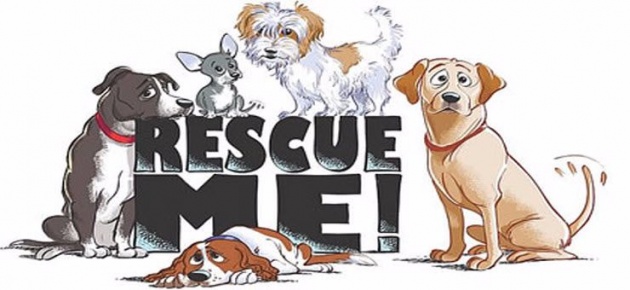Hey dear friends, how are you today? I hope everyone is wonderful!
This time I decided to write a blog about pets and how to choose a pet to be our true furry friends! Yes, I do love pets, but I don't have one anymore since July 27th, 2016, when my cat died. She was 20 years old and it was only we two in the apartment. Now, the apartment is huge without her! (Well, I will dedicate a blog to her one day, but let's concentrate on the subject now, or I will be crying all the time. Enjoy the blog!)
Introduction
You want to have a pet but do not know which one? Here are some facts to consider when choosing your pet. Pets can be a lifetime responsibility, so you should have the responsibility to choose well with who will share your life. They are real animals - not stuffed animals that can be "thrown away" when you get bored of them.
Source: Youtube
1. Adopting the right pet can be a challenge
Think about what kind of animals you like. Do you like small, easy-care animals? Or do you like animals that require a little more care? Or do you like big animals? When thinking about size, remember that cats and dogs grow. Some breeds remain small, but some can grow a lot. It depends on the type of cat or dog.
2. The cost of the animal can be an important factor in choosing the right animal
Consider both the initial cost of purchase (when purchasing a soul, if you know what I mean) as well as the cost of maintenance, veterinary care, food, etc. In fact, if you can adopt an animal is better than purchasing, because souls can't be purchased. Consider visiting animal shelters and ask your friends if they have animals to offer for adoption. There is always an animal in need of your care and love. Their maintenance must be a big concern in your life and think about your pet as a child you have. Separate an amount of money every month to take good care of the pet you chose to be your life companion!

Source: Pet Herald
3. If you are thinking about having an exotic animal, first check the laws of the city, state, and country about owning or importing the animal
If you are bringing an animal from outside the country, check with the airline and customs on the necessary documents and the quarantine procedure of animals coming from a particular country. These may vary by border and change without notice depending on health regulations.
4. Check if your building or condo allows animals
If you are renting or living in an apartment or condominium, does your building allow for that kind of animal you want? The rules can vary widely. Many buildings allow smaller animals but not large ones, some do not allow certain animals regardless of size, some allow as long as a deposit is made, etc. Check with the condominium manager about different species, breeds, and sizes that you intend to have. Get written permission, and update your contract if you think you might have problems.

Source: Stay Savannah
5. Ask yourself several questions about different types of pets
Aquatic animals
• How much space do you have left? Do you have an AC power plug or socket near that space? (For an aquarium.)
• Do you have time to take care of this? That means more than giving food? Do you have time to commit to the regular aquarium cleanings: separate the fish individually, clean pumps and filters, wash the entire structure and then gently put the fish back without stressing them too much?
 Source: Southern India Aquaculture
Source: Southern India Aquaculture
Birds
• Do you have enough space? The bigger the bird, the bigger the cage it will need.
• Some birds, especially parrots, have a long life expectancy. African gray parrots, for example, live an average of 50 years. Parakeets, on the other hand, live between 5-15 years. Do not choose a bird that can not make a lifetime commitment.
• Do you have time to stay with them? Cages need to be cleaned weekly. Birds should be wetted a few times a week. They need at least a few hours a day of interaction with humans. A solitary bird gets bored easily and may develop bad habits of pecking and overeating that can be harmful if left untreated. Toys and companies can improve this problem, but they still need interaction with the family. They may not get along with other companion birds and this also affects overall costs, space, etc.
• Many species of birds are trapped. As such, they have developed to show no signs of disease until they are almost dead. Do you have a keen sense of observation to be able to give immediate medical attention to your bird?
If you can avoid having birds, just do it! I do not consider them pets at all unless you let them be free in your own home and fly everywhere freely! If you think this is not fair, I ask you: would you like to be in a cage? Period!
 Source: Pixabay
Source: Pixabay
Snakes and Lizards
• Are you prepared to have a long-living pet?
• Are you willing to feed them with crickets and mice?
• Do you have enough space? Snakes and some lizards can get very large. Are you prepared to increase space?
• Who will take care of them when you leave?
These are not pets as well. They belong to nature and nature alone. Leave them there and think about preserving the environment and all it gives us: air to breathe, water to drink, freedom to walk amount the trees, but not wild animals in our homes. Be wise!
Dogs and Cats
• Can you have cats or dogs where you live? Do you have a yard, or are you prepared to take the dog for a walk?
• Can you pay for obedience training? Having a disobedient animal can be a mess in your life. Even if you prefer not to do a formal training, you should be prepared to do research and apply the discipline necessary for basic training.
• How much attention can you devote to them? Most dogs have to be taken to walk around every day and have to go out to do the necessities. Certain breeds of dogs develop behavioral problems if they are left alone for long periods of time.
• Who will take care of them when you travel? See the availability of kennels and pet hotels in your area if you do not have friends or family willing to take care of them when you leave.
• Do you move too much? Dogs especially may not respond well to frequent changes in the immediate habitat.
• Are you going to get an adult animal or a puppy? If it is a puppy, make sure it is old enough to be separated from the mother. Young animals need a lot of nurturing and care. Remember that they need more attention and love. This means a greater commitment of your time.
• Dogs and cats can live for an average of 15 years, depending on the breed. Are you willing to have that commitment?
• Can you pay for annual vet visits and unexpected bills? Maybe you should reconsider a pet's health insurance for them.

Source: Buzznet
6. If you can not afford all these expenses, try to have an imaginary little animal or a stone as a pet
Are you laughing? I hope not, because I mean it! If you don't have time for a real pet, you can imagine one or even choose one piece os furniture to play with as a pet! (I know it sounds crazy and, believe me, if you can't have a pet, just don't have one. They will suffer and if you have a heart and soul, you will suffer for the rest of your life too, if something bad happens to this little creature while under your responsibility!)
Advices
• Research the animal before accepting the responsibility. Do not adopt on impulse!
• Do not be intimidated by all an animal can make you do. An animal can be a precious addition to your life, and all the work and responsibility are worth it. But you still need to be ready to accept responsibility.
• Remember that adoption can even help or save the lives of dogs and cats, so it's a great way to get a pet. In addition, most adoption shelters provide castration and microchip services for pets prior to adoption. In some places, it is even mandatory that they are castrated. This avoids overpopulation, especially of cats.
• NEVER buy an animal from a pet shop or any other place. Some stores get puppies from irregular breeders. This may mean that animals have genetic problems, which can cause behavioral and mood problems, or physical problems that require veterinary care. On top of that, breeding to make a business is horrible. They are manipulating lives and souls, not a piece of wood or a brick! Be responsible and adopt! Say no to buying!
• Look in local shelters for your perfect pet.
• Did your parents say no? Try to be a dog walker, or nanny for animals, or volunteer in an animal shelter until your parents see how much you want to get involved with animals. Then tell them you will buy all the equipment for the pet on your own, using the money from the rides or nanny.
• Always research to know the animal better before adopting it. This will help you take care of its needs.

Source: Flickr
Enjoyed? I did a lot! Thanks so much for your visit and stay tuned for more blogs! Have a great day!



